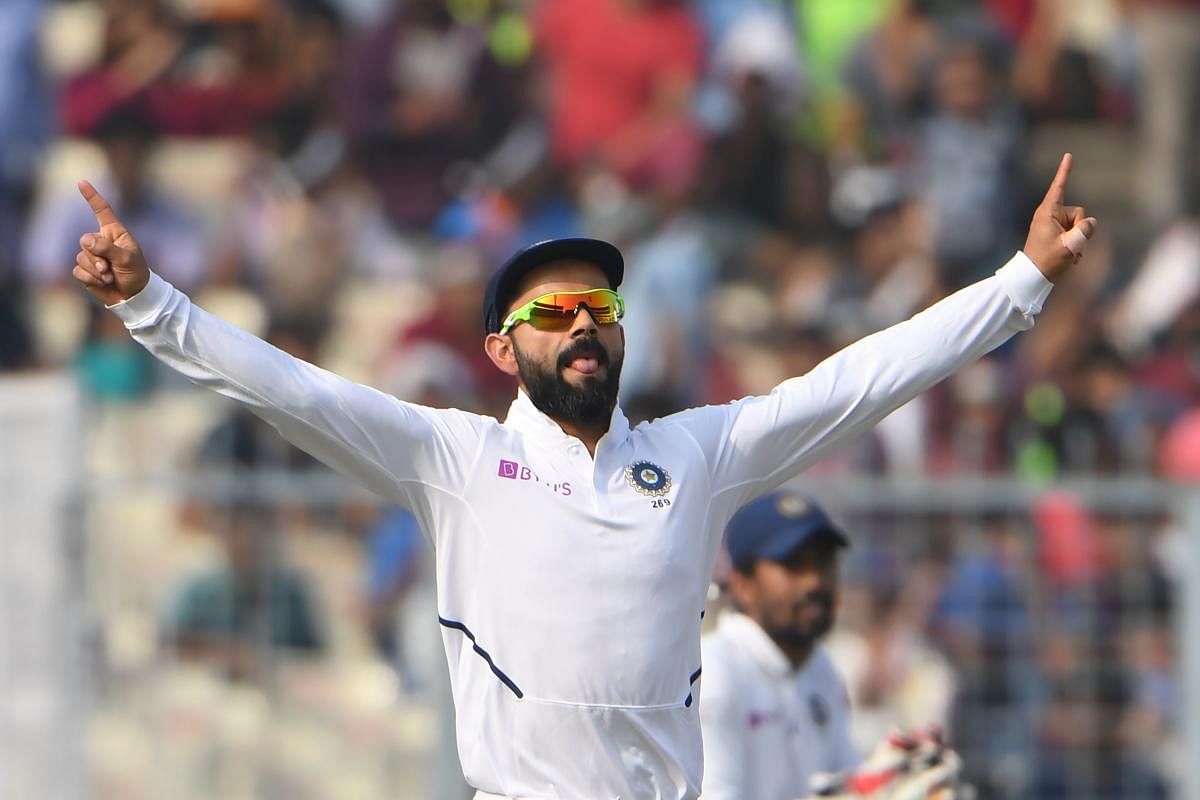The novelty factor attached to maiden pink ball Test by India generated huge interest among public who packed the Eden Gardens on the first two days and came in large numbers on the third day that lasted less than the time most of them would have taken to reach the iconic stadium.
The day-night concept alone, however, couldn’t have been the only reason behind such a great response which enhanced the stature of an otherwise lopsided contest between India and Bangladesh.
While massive price cuts (the highest ticket price being Rs 150 and the lowest being Rs 50) and publicity campaigns through conventional and social media played a huge part in large attendances, inviting sporting legends from various sports added an aura to the occasion. On occasions, though, the sideshows appeared to hijack the main event itself.
The pink ball and marketing may have delivered this time, but is it a sustainable way of promoting Test cricket? Virat Kohli firmly believes so.
“I think it is very, very crucial to market Test cricket like we do for T20 and one-day cricket,” said Kohli in his post-match comments. “Because it is not only the job of the players playing, it spreads out to the management, to the cricket board and to the home broadcaster as well of how you portray a particular product to the people. Because if you create excitement only around T20 and not so much around Test cricket, then in the psyche of the fan there's already a certain template that's established. So, I think if there's enough buzz created around Test cricket then there will be a lot more keenness to come to the stadiums,” he explained.
In countries like England and Australia, where Test cricket still rules, there are a lot of attractions for spectators apart from the cricket itself. Children are invited to play on the field during intervals while MCs interact with fans to keep them entertained.
“There's something or the other always happening maybe a play area for kids,” he pointed out. “These small things will really help. Maybe school kids could interact with team India players during lunch, be on the field, play with them like we see in other countries as well. I think all these things will really bring the strength into Test cricket and people would want to come and have an experience of a Test match. It should be an event where you come and experience Test cricket, not just sit there and watch in hot sun. I think there has to be more for the fans, I totally agree with that and it has to be marketed well.”
*****
There has been a lot of lip service to Test cricket in some countries, but little is done to promote the longer format. Kohli was asked if those countries should walk the talk.
“Yes and no,” the Indian skipper began. “I think the role of the players is only up to a limit. How your cricket board handles it (matters a lot). If you look at South Africa, they’ve been having issues for a few years now. I’m not sure how Test cricket is discussed in the Bangladesh board, how it’s promoted or how much importance it is given.”
Giving an example of the BCCI, Kohli felt that financial incentives could go a long way in keeping Test cricket healthy. The disparity in payments between a T20 player and a Test cricketer could kill the latter’s motivation to continue playing the traditional format.
“I think eventually the strength of your Test cricket should come from the financial structure,” he emphasised. “If Test cricketers are not kept at a good financial level, after a while their motivation goes down because some player who plays 20-over games and is bowling four overs is making 10 times what you make. At the end of the day it’s your livelihood, so you’ll stop seeing the logic in sticking on after 5-6 years. You’ll want to change your profession and become and say you’ll only play T20s. I think that factor can only be sorted by your central contract. You see why Australia, England and New Zealand have been strong for years - because their contract structures start from Tests and then everything else follows.
“So, from my point of view, we have made those changes here so that Test players feel that if they stay committed for a long time, then they’ll have a secure future. You should have motivation and passion but also logic alongside it. If you just say play with passion and financially forget about it, then as a professional cricketer you can’t just leave this and find a job somewhere else - you won’t get one, you only know how to do this. So, I think that’s something we figured out and now we can see the results.”
